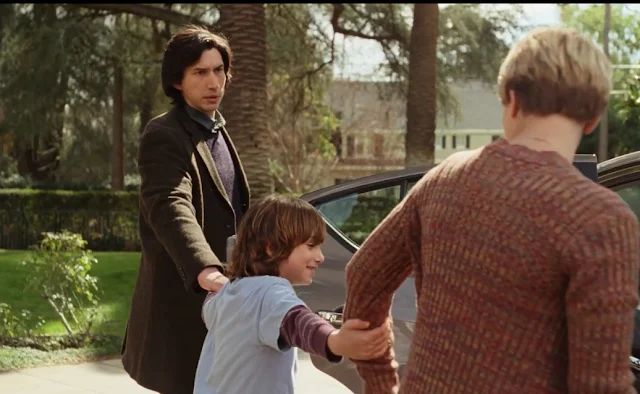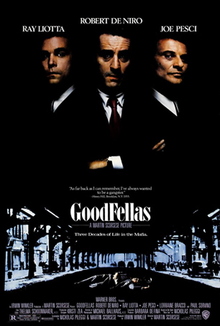A blog formerly known as Bookishness / By Charles Matthews
"Dazzled by so many and such marvelous inventions, the people of Macondo ... became indignant over the living images that the prosperous merchant Bruno Crespi projected in the theater with the lion-head ticket windows, for a character who had died and was buried in one film and for whose misfortune tears had been shed would reappear alive and transformed into an Arab in the next one. The audience, who had paid two cents apiece to share the difficulties of the actors, would not tolerate that outlandish fraud and they broke up the seats. The mayor, at the urging of Bruno Crespi, explained in a proclamation that the cinema was a machine of illusions that did not merit the emotional outbursts of the audience. With that discouraging explanation many ... decided not to return to the movies, considering that they already had too many troubles of their own to weep over the acted-out misfortunes of imaginary beings."--Gabriel García Márquez, One Hundred Years of Solitude
Search This Blog
Showing posts with label Ray Liotta. Show all posts
Showing posts with label Ray Liotta. Show all posts
Monday, December 30, 2019
Marriage Story (Noah Baumbach, 2019)
Marriage Story (Noah Baumbach, 2019)
Cast: Scarlett Johansson, Adam Driver, Laura Dern, Ray Liotta, Alan Alda, Azhy Robertson, Wallace Shawn, Julie Hagerty, Merritt Wever, Martha Kelly. Screenplay: Noah Baumbach. Cinematography: Robbie Ryan. Production design: Jade Healy. Film editing: Jennifer Lame. Music: Randy Newman.
The enthralling performances of Scarlett Johansson and Adam Driver give Marriage Story its solid substance, and Noah Baumbach's direction of them provides its estimable style. He lets Johansson deliver Nicole's indictment to her lawyer of Charlie's faults in a single-take monologue, and has the confrontation of Nicole and Charlie in his L.A. apartment build in a slow crescendo that ends with Charlie slamming his fist into the wall, then collapsing on the floor to be comforted by her. But my favorite scene is probably the visit of the court-appointed examiner to Charlie's apartment. She's drab and diminutive, towered over by the hulking Driver, but we sense how much power she holds over Charlie -- as does he, constantly putting his foot wrong no matter how he tries not to. Driver is simply wonderful in a scene that concludes with Charlie cutting himself in an attempt to defuse Henry's embarrassing revelation that he plays a trick with a knife. The trick goes wrong and Charlie, bleeding profusely, assures the examiner that it's really nothing, ushers her out of the door, then rushes to the kitchen to try to stanch the flow of blood, frantically applying band-aids and unreeling a lot of paper towels before falling to the floor, almost catatonic with chagrin. It's a hugely accomplished movie, with some faults, I think. Wallace Shawn's vain old actor, blathering on about his Tony award and his past accomplishments is a caricature, as is Julie Hagerty's dithery turn as Nicole's mother. The lawyers are too easily slotted into their roles as villains, spoiling Nicole and Charlie's plans for a friendly divorce. Only the skill of Laura Dern, Ray Liotta, and Alan Alda keeps their characters from descending to the level of cliché, though Dern's Nora echoes her role as Renata in Big Little Lies a bit more than I'd like. But the intelligence of the central performances outshines all of the film's missteps.
Sunday, February 28, 2016
GoodFellas (Martin Scorsese, 1990)
Considering that it's Oscar night, I suppose I need to observe that 25 years ago tonight, the best picture and best director Oscars went to Dances With Wolves and Kevin Costner. For many this is yet another example of a gaffe by the Academy. I actually remember enjoying Dances With Wolves a great deal, though it has been years since I saw it. I liked Costner's and Mary McDonnell's performances in the movie, appreciated the attempt to see things from the point of view of Native Americans, and found the buffalo stampede thrilling. But I haven't seen it again for many years, and don't really have much interest in doing so: There are other equally enjoyable movies to watch instead. There are people who say that the real test of a movie is whether you want to see it again and again, because each time you do, you either see it differently or get a sense of why you liked it the first time. In the latter case, there's a great pleasure in hearing the dialogue in a movie like Casablanca (Michael Curtiz, 1943) fall into its accustomed place each time you revisit it. But GoodFellas seems to me to fill both categories: You anticipate the "What do you mean, I'm funny?" exchange between Tommy (Joe Pesci) and Henry Hill (Ray Liotta), while at the same time you see something new each time in the way scenes are staged by Scorsese, shot by Michael Ballhaus, or edited by Thelma Schoonmaker. I will have to say that the Academy's choice this time doesn't seem so egregious to me as does, say, its choice of Ordinary People (Robert Redford, 1980) over Raging Bull (Scorsese, 1980) does. GoodFellas is just a little too clever and showy for its own good: Consider the dazzling tracking shot as Henry and Karen (Lorraine Bracco) enter the Copacabana via the cellars and kitchens, or the fast-paced editing in the climactic scene when the paranoid Henry is dashing around town, keeping an eye on the helicopter above. On a repeat viewing, both scenes maybe draw a little more attention to film technique than is good for narrative coherence. But these are quibbles. GoodFellas won exactly one Oscar, for Joe Pesci's hair-trigger performance. Lorraine Bracco lost to Whoopi Goldberg in Ghost (Jerry Zucker), the adapted screenplay award went to Michael Blake for Dances With Wolves instead of to Nicholas Pileggi and Scorsese, and Schoonmaker lost the editing Oscar to Neil Travis for Dances. And Ray Liotta's exceptional performance went completely unnominated. But then, who knows what movie we'll be talking about 25 years from now as having unfairly lost to tonight's winner?
Tuesday, September 22, 2015
Kill the Messenger (Michael Cuesta, 2014)

This is a movie that will please no one who has first-hand acquaintance with any of the people supposedly portrayed in it, but the real problem with Kill the Messenger is that it has three great stories to tell and fails to tell any of them well. The first story is the one Gary Webb thought he had broken: the CIA connection to the crack cocaine epidemic. Given the complexity and range of that story, which will probably never be fully and accurately told, it's not surprising that the movie fails to do it justice. The second story is that of the frenzied politics of journalism, a story that probably holds little interest to anyone not involved in journalism and is hard to dramatize because there are so few clear-cut heroes and villains to be found in it. (And in any case, it has been superseded by another story: the slow demise of print journalism.) And finally, there's the story of the way reporter Gary Webb's involvement in the other two stories sent his life into a downward spiral. This is the story the movie chooses to concentrate on, but it does so in such a heavy-handed, cliché-raddled way, particularly with its focus on Webb's relationship with his wife (Rosemarie DeWitt) and teenage son (Lucas Hedges), that it doesn't make the tragic impact that it could have. I never met Gary Webb, and when the Sturm und Drang of "Dark Alliance" was taking place in the newsroom at the Mercury News, I was busy doing my thing in a far corner on the third floor back of the Merc's Ridder Park Drive plant. I recall that on the day the first story in the series appeared, a colleague said, "Well, Gary Webb just won us another Pulitzer." That was, of course, before the shit flung by the big papers in Washington, New York, and Los Angeles hit the fan. But it also revealed something about the way Pulitzer fever infected the Mercury News, as it does other newspapers. Webb was a victim of it, as was the Merc. There are things to like about the movie, mostly having to do with its performers, starting with Jeremy Renner as Webb. It's also good to see underused actors like Andy Garcia and Ray Liotta, and while nobody who knows the real Jerry Ceppos would ever have chosen Oliver Platt to play him, Platt does a good job of playing a man caught up in a whirlwind of competing pressures and managing to keep his head.
Subscribe to:
Comments (Atom)










